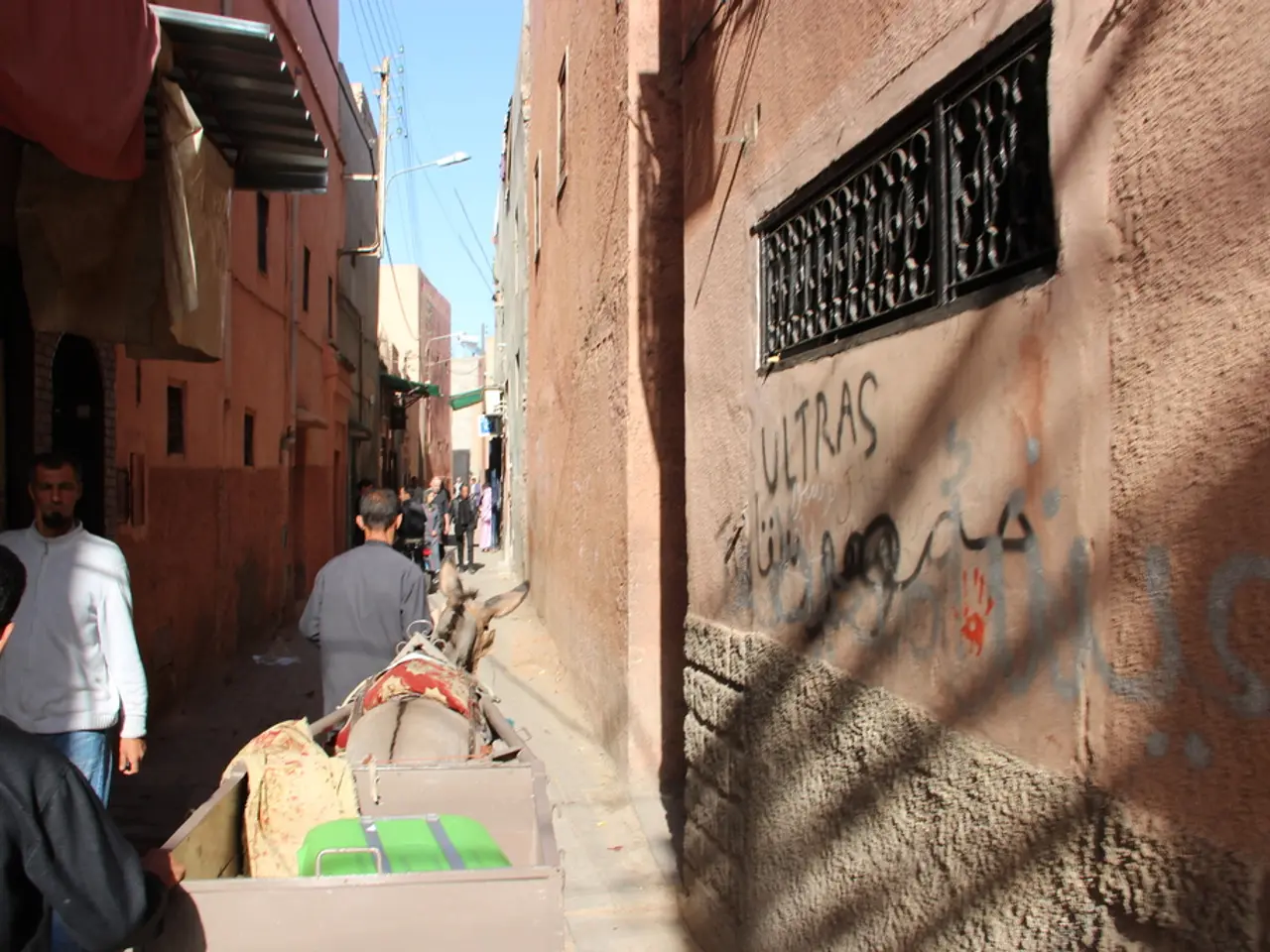Global leaders gathered under The Elders umbrella issue a serious warning, predicting potential genocide in Gaza.
Crisis in Gaza: A Humanitarian Emergency of Unprecedented Proportions
Gaza is facing an unprecedented humanitarian catastrophe, with the situation worsening by the day. This dire emergency is characterised by widespread famine, destruction, displacement, inadequate aid delivery, and ongoing violent conflict between Israel and Hamas.
The conflict, which began in 2023, has left nearly 70% of Gaza's infrastructure in ruins and has resulted in rampant displacement, with safe areas reduced to less than 12% of the territory. According to the Integrated Food Security Phase Classification (IPC), by September 2025, at least half a million people in Gaza will be in IPC Phase 5—catastrophic starvation, destitution, and death.
The United Nations Secretary-General António Guterres has described the situation as "epic" and "unfolding before our eyes." One in three Gazans is currently going without food for days at a time, and hospitals have treated over 20,000 children for acute malnutrition since April 2025, with at least 16 children under five dying of hunger-related causes since mid-July.
The delivery of humanitarian aid to Gaza is critically hindered due to Israeli policies that severely limit the quantity and adequacy of aid delivered. This blockade, compounded by intensified Israeli military operations, has resulted in many displaced Palestinians being pushed into areas like Al-Mawasi, which lack essential services such as food, water, electricity, and shelter.
Aid delivery is also critically hindered by the high risks to humanitarian personnel. Since the conflict escalated in 2023, over 500 aid workers and at least 1,500 health workers have been killed in the occupied Palestinian territory, with 70 aid workers killed in just the first half of 2025.
The ongoing conflict involves intense Israeli military operations, including 54 recorded attacks on residential buildings in Gaza City since August 2025, killing dozens of Palestinians. Israeli displacement orders and military escalation have caused massive internal displacement, with many Palestinians lacking access to basic necessities amid continuous airstrikes.
A delegation, including Mary Robinson, former president of Ireland and former UN High Commissioner for Human Rights, and Helen Clark, former prime minister of New Zealand, recently visited Gaza and expressed shock and outrage at Israel's obstruction of humanitarian aid. They heard witness accounts of the killing of Palestinian civilians, including children, while trying to access aid inside Gaza.
The delegation called for a ceasefire, the release of hostages in Gaza, and the immediate suspension of transfers of arms and weapons components to Israel. They also urged the opening of the Rafah border crossing to allow aid delivery. The London-based group, founded by Nelson Mandela in 2007, has also called for the recognition of the State of Palestine.
The situation in Gaza demands urgent international attention, ceasefire efforts, and unhindered aid access to prevent further catastrophic loss of life. The violence must end, and humanitarian operations must be allowed to function without fear of attack. The international community must act now to prevent a human-caused famine and potential genocide in Gaza.
[1] UN OCHA, "Gaza: Humanitarian Situation Overview," accessed October 2025, https://www.ochaopt.org/content/gaza-humanitarian-situation-overview
[2] UNRWA, "Gaza Crisis: Factsheet," accessed October 2025, https://www.unrwa.org/newsroom/factsheets/gaza-crisis-factsheet
[3] World Health Organization, "Gaza Crisis: Health Situation Update," accessed October 2025, https://www.who.int/emergencies/gaza/situation-report-2025-08-20
[4] International Committee of the Red Cross, "Gaza: Humanitarian Situation," accessed October 2025, https://www.icrc.org/en/where-we-work/middle-east-north-africa/israel-palestine/gaza
[5] Amnesty International, "Israel/Occupied Palestinian Territories: Unlawful killings of civilians in Gaza," accessed October 2025, https://www.amnesty.org/en/latest/news/2025/08/israeloccupied-palestinian-territories-unlawful-killings-of-civilians-in-gaza/
- The international community must prioritize the Gaza crisis, a humanitarian emergency of unprecedented proportions, in their general news and politics discourse.
- The escalating war-and-conflicts between Israel and Hamas in Gaza have led to a health catastrophe, with hospitals treating over 20,000 children for acute malnutrition since April 2025.
- The situation in Africa should also include coverage of the grave human rights violations occurring in Gaza, where at least 16 children under five have died of hunger-related causes since mid-July.
- In light of Israel's harsh policies limiting humanitarian aid delivery to Gaza, crime-and-justice organizations should investigate the critical hindrances faced by aid workers and health personnel.
- Human rights advocates should demand an immediate end to the violent conflict and intensified Israeli military operations in Gaza, enabling safe access for humanitarian aid delivery and essential services for displaced Palestinians.






